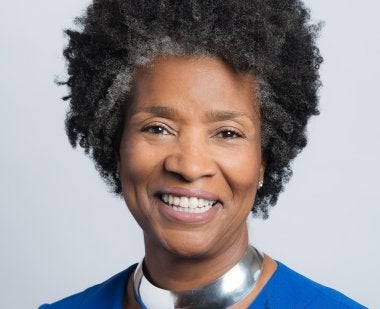

Teaching and Learning, Policy and Leadership - Language, Literacy, and Social Inquiry Specialization, Ph.D.
The Teaching and Learning, Policy and Leadership - Language, Literacy, and Social Inquiry Specialization, Ph.D. program is focused on the study of language and literacy learning in pre-kindergarten through high school, with a strong commitment to centering cultural and linguistic diversity. Our faculty and students value multiple perspectives and analyze classroom and societal structures of power and privilege that influence literacy and language practices in schools, families and communities.
The program offers two areas of focus: Applied Linguistics and Language Education, and Literacy Education. Students have research interests ranging from bi/multilingualism, bilingual/dual language education and code switching to culturally responsive approaches to elementary reading instruction, research comprehension strategies and vocabulary for literacy learning.
Boasting tailored programs of study, you will take doctoral courses designed to provide an overview of the field and elective courses that meet your specific research interests. You will also engage in a wide range of research methodologies and apprenticeship experiences with well renowned and expert faculty.
The degree prepares students to become researchers, curriculum specialists, teacher educators, and educational leaders who work effectively with children, families and communities.
- Examine, analyze, and question the theories, research, and best practices in literacy research and practice.
- Apply knowledge in literacy to problem solving, developing best practices, and researching in authentic and diverse schools and other professional settings.
- Work individually and collaboratively with advisers and peers on presenting and publishing research findings and best practices at research conferences and in professional journals.
Information on admissions and application to this program can be found on the University Graduate Admissions website and the program handbook.
The Ph.D. in Teaching and Learning, Policy and Leadership - Language, Literacy, and Social Inquiry requires a minimum of 60 credits. All students are required to be full-time students.
Our curriculum is rigorous and collaborative, and includes a combination of gateway courses, specialization core courses, seminars and a doctoral dissertation.
For more details on the curriculum, view the handout.
This program has two areas of emphasis:
The curriculum consists of the courses listed below.
All full-time students in a Ph.D. program in the Department of Teaching and Learning, Policy and Leadership complete a two-course sequence of core, integrated foundational courses.
- TLPL 794: Foundations of Education Inquiry: Core I
- TLPL 795: Foundations of Education Inquiry: Core II
Students complete in-depth study and training in courses tailored to their individual interests and aligned with their chosen specialization area.
- Applied Linguistics and Language Education - Take three of the four doctoral courses listed below.
- TLPL 740: Language and Education
- TLPL 743: Teaching English Language Learners: Current and Future Research Directions
- TLPL 744: Research Foundations of Second Language Education: Examining Linguistically Diverse Student Learning
- TLPL 788 K: Special Topics in Education: Learning Within and Without School
Detailed information about the course sequence for the ALLE focus area.
- Reading/Literacy - Contact your advisor for suggested course sequence.
- English Education - Contact your advisor for suggested course sequence.
Students are required to take 30 semester hours of coursework (typically ten courses), selected in consultation with the advisor. These courses generally take the form of doctoral seminars taught by program faculty and may include doctoral level courses from other departments.
Some students are required to take one 700-level literacy course to fulfill a breadth requirement, based on their focus area.
Students are required to take research methods courses, including one qualitative and one quantitative methods course. Students may take research methods courses in the Department of Teaching Learning, Policy and Leadership, the Department Human Development and Quantitative Methods or other academic departments. Recommended research courses include:
- TLPL 788 I: Special Topics in Education: Statistical Literacy for Education Research
- TLPL 791: Qualitative Research I: Design and Fieldwork
- TLPL 792: Qualitative Research II: Analysis and Interpretation of Data
- TLPL 793: Methods of Discourse Analysis
- TLPL 860: Seminar on Case Study Methods
Doctoral students enroll in a weekly seminar based on their area of focus to explore opportunities for collaborations with faculty and students, develop their knowledge of the field and the academic profession, and apprentice into the broader research community.
- TLPL898 Pre-Candidacy Research
- TLPL899 Doctoral Dissertation Research
Our faculty are chosen for their expertise and dedication; they provide exceptional guidance and support to foster your academic and professional success.
- Kerry Alexander (Reading Education)
- Ayanna Baccus (Reading Education)
- Reka Barton (Reading Education)
- Shannon Kane (Reading Education)
- Olivia Saracho (Reading Education)
- Wayne Slater (English Education)
- Jennifer Turner (Reading Education)
- Peggy Wilson (English Education)
For general information, please contact:
Kay Moon
Graduate Coordinator (Admissions)
kmoon@umd.edu
For more information regarding Applied Linguistics and Language Education, please contact:
Melinda Martin-Beltran
memb@umd.edu
For more information regarding English Literacy Education, please contact:
Wayne Slater
wslater@umd.edu
